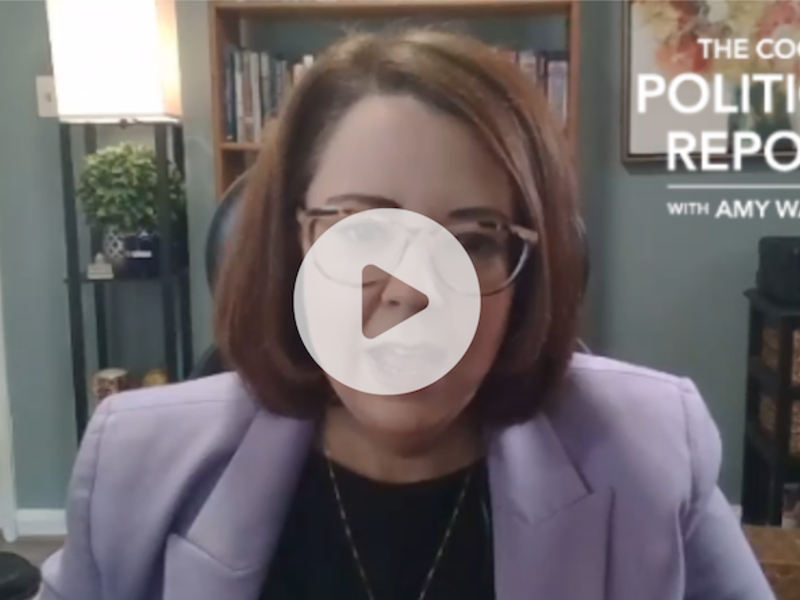
Most everyone realizes, or soon will, that things are not going to be anywhere near normal for a long time. In fact, they could hardly be more fluid or uncertain. The United States and, for that matter, the world is facing interlocking challenges—medical, economic, financial, and, as a result of all of these, societal, personal, and psychological challenges.
Unlike 9/11, when lives changed instantaneously, this realization is likely to be somewhat more gradual, with different people reacting at different times and possibly in different ways. In the new NPR/PBS/Marist College national poll, the 835 adults interviewed were asked if they were “very concerned, concerned, not very concerned or not at all concerned about the spread of the coronavirus to your community.”
Overall, 7 in 10 were either very concerned (31 percent) or concerned (39 percent), while 3 in 10 were either not very concerned (21 percent) or not at all concerned (9 percent). This was up significantly from February, when only 44 percent expressed concern.
Among Democrats, 84 percent said they were concerned to some degree, but the figure for Republicans was 26 points lower, at 58 percent. The intensity of concern (or lack thereof) also differed enormously: 52 percent of Democrats were very concerned, but just 17 percent of Republicans and 20 percent of independents were. So, from the perspective of a member of Congress, the differences in levels of concern can vary substantially based upon the partisan composition of that state or district.
Indeed, the bases of our two major parties live in two very different and parallel universes. As former National Republican Congressional Committee Chairman Tom Davis noted at a Cornell University event this week, the two parties have to manage the tension between the attitudes of their respective bases and those of swing voters. The red meat that energizes the former often alienates the latter.
Earlier this week, this column looked at some of the findings in the most recent NBC News/Wall Street Journal poll that took a good look at public attitudes, as of late last week, on the coronavirus as well as the political impact so far.
In an analysis of the survey findings, Peter Hart, the Democratic partner in the NBC/WSJ poll, wrote, “National emergencies, international events, natural disasters, and health crises are often a time when the performance of a president, governor or mayor rises or falls on the basis of their performance. For now, there is no change. For President Trump his current job rating is 46 percent positive and 51 percent negative, virtually unchanged from our February survey." For Trump, the clutch is still in, not yet in a forward gear or in reverse.
It is pretty clear that Trump was a bit late to the party in terms of taking the COVID-19 threat seriously. In fact, he was quite dismissive at first. But in the last week, he seemed to take a rather dramatic turn, realizing perhaps that his presidency might well turn on how he handles this.
Is this going to be a political disaster for Trump? Or will it be an Oklahoma City moment, as when President Clinton seemed to turn his fortunes around in April 1995, 25 years ago next month. After a domestic terrorist bombing of a federal building, less than five months after the worst election for Democrats in modern history, Clinton’s unifying speech seemed to revive his presidency. For Trump, he will have a hand in writing the history of his own presidency by what he says and does in the coming weeks and months. His reelection challenge is a formidable one, but this ship has not yet hit the shoals.
Bill McInturff’s team at Public Opinion Strategies, the Republican half of the pair of firms that conduct the NBC/WSJ poll, gathered and transcribed verbatim quotes from 100 of the registered voters who were reached last Friday, just after Trump declared COVID-19 a national emergency. They were asked a deliberately vague question: “There is a lot happening in America during this period of time. What is your thinking? What are you focusing on the most?” Going through the verbatims, Hart observed: “Coronavirus is discussed in terms of what it means for inconvenience or financial uncertainty. As of this weekend, the focus was not about the children or the grandparents, or even the potential loss of life or the spread of the disease.”
The differences in responses of Republicans, Democrats, and independents were remarkable. As Hart wrote: "Democrats train their fire at Trump with real vehemence against his leadership style and his agenda. Climate change is also frequently mentioned. Republicans rarely mention President Trump and almost no blame is assigned to his handling of the virus outbreak—as previously noted, they blame the media.”
Hart, a 50-year veteran in public-opinion research and political polling, and I believe unquestionably the leading authority on political attitudes, observed that “Republicans are more likely to show an inward-looking set of concerns about how it affects me/my family. The responses by the Democrats tend to be looking outward—how it affects us as a society.”
Whichever side rises to the occasion during this period of incredible crisis will determine the course that it takes, and ultimately perhaps how it ends. Conversely, a party that is seen as unresponsive or irresponsible, one tone-deaf to this new reality, will pay a heavy price, at a time when the White House, the Senate, and the House are on the line—and more importantly, when lives and livelihoods are on the line.
This story was originally published on nationaljournal.com on March 20, 2020










Subscribe Today
Our subscribers have first access to individual race pages for each House, Senate and Governors race, which will include race ratings (each race is rated on a seven-point scale) and a narrative analysis pertaining to that race.